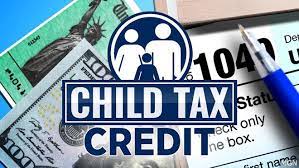The 2022 tax season is right around the corner, and now is a great time to start thinking about your upcoming tax return and refund. There have been many tax changes in 2022 that could have an impact on your return in 2023.

Preparing ahead is the best way to ensure you can save money and take action before the year runs out. Here’s more about some of the most pertinent tax changes you should be aware of for the 2022 tax season.
Earned Income Tax Credit
In 2021, more individuals were able to claim the Earned Income Tax Credit (EITC). However, the enhancements that allowed for those without qualifying children to claim the EITC are not in effect for the 2022 tax season.
This changes the minimum and maximum age limits for the EITC back up to 25 and 65 years old, respectively. The maximum tax credit available for workers without children will be dramatically decreased from more than $1,500 to $560.
Inflation adjustments will increase the maximum amount of the EITC for the 2022 tax year. For instance, in filing your 2022 tax return the amount for someone with two or more children is set at just over $15,000.
Child Tax Credit
The Child Tax Credit for 2022 is going to revert down to $2,000 per child. The age limit has also dropped from 17 years old to 16 years old.
Be aware, the 2022 Child Tax Credit may only be partially refundable and workers must have earned a minimum of $2,500 to claim the Child Tax Credit. Advance payments of the Child Tax Credit are not available for 2022.
Child and Dependent Care Tax Credit
The Child and Dependent Care Tax Credit adjustments are reverting for the 2022 tax season. In 2021, the Child and Dependent Care Tax Credit were worth as much as 50% of a maximum of $16,000 for two or more children.
However, in 2022, the Child and Dependent Care Tax Credit is nonrefundable, and the maximum percentage is only 35% of a maximum of $6,000 for more than one child.
Furthermore, the Child and Dependent Care Tax Credit is only fully available for families earning less than $15,000 in 2022. Anyone earning more than $15,000 will see their credit allotment decrease as their income increases.

